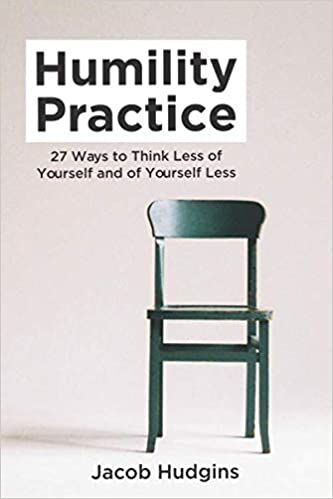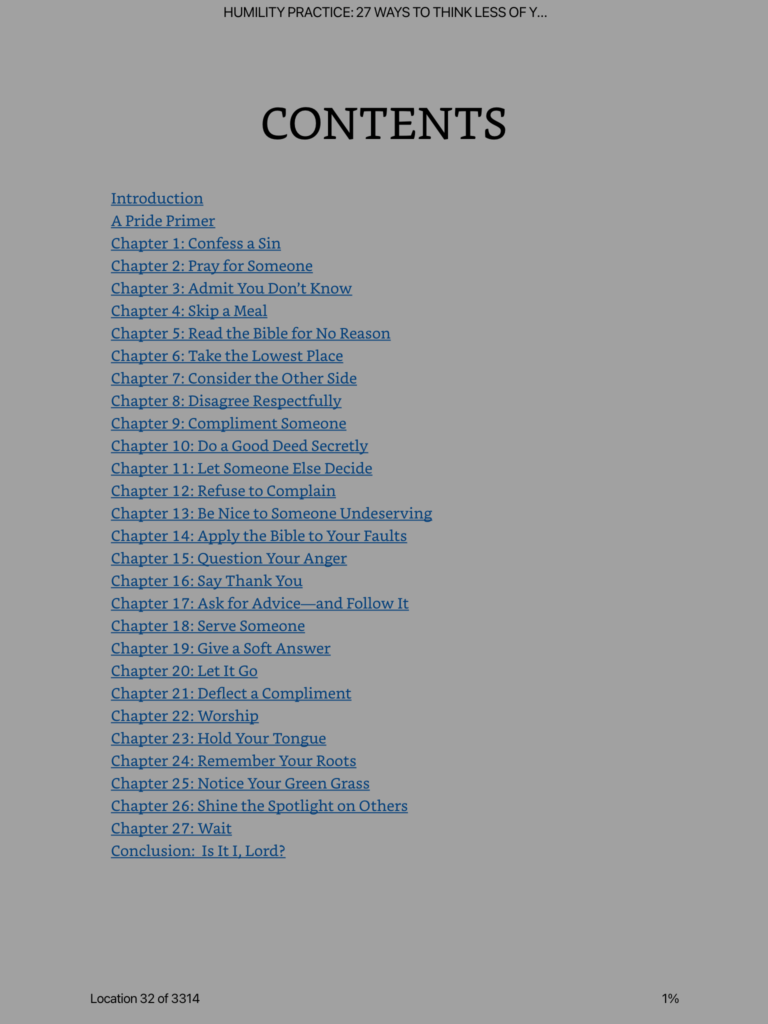
In Finally Free: Fighting for Purity With the Power of Grace, the author Heath Lambert makes a provocative statement: “Only arrogant men look at pornography.” That doesn’t sound very empathetic. What about my trauma, loneliness, and boredom? What about my need for a sexual outlet? What about unprecedented temptation made possible by the internet? Historically, theologians agree that pride is a master vice that enables all other vices. Absent pride, there is no moral compromise, regardless of whatever pain and temptation may be present. It is generally true that how people medicate pain and navigate circumstances is indicative of their character.
Pride manifests as a disregard for God. When we disobey God, we are effectively saying, “I couldn’t care less about you.” Pride also manifests as a disregard for others. When we act in a manner that impairs our ability to love others, we are effectively saying, “I couldn’t care less about others.” Our worst moments do not define us. There’s more to the story. But if we struggle in an area, it is instructive to identify the underlying root of pride.
Finally, pride creates the illusion that we are immune from the consequences of our actions. In extreme cases, it leads people to believe that they can get away with murder. When pride is at play, people will make the lowest-probability decisions expecting the highest-probability outcomes. Humility, on the other hand, brings us in line with reality and motivates wise decision-making.
We think we can get away with lying, cheating, stealing, lusting, treating people poorly, and making unwise life decisions. Sure, others reap what they sow, but we’re essentially different than them so we don’t need to pay attention.
I Am Not The Exception To The Rule (4 Toxic Beliefs That Destroy Destinies)
In advanced cases, pride shows up as the belief that the ordinary rules of life don’t apply to a person as great as me… Paul speaks to this as well: “Do not be deceived: God is not mocked, for whatever one sows, that will he also reap. For the one who sows to his own flesh will from the flesh reap corruption, but the one who sows to the Spirit will from the Spirit reap eternal life†(Gal 6:7-8).
From “Humility Practice” By Jacob Hudgins
The word pride may conjure up images of a loudmouth, blowhard, or showoff. However, pride can just as well manifest as a quiet, anonymous decision to do wrong when no one is looking.
The root problem with men who look at porn is not neediness—it is arrogance.
Heath Lambert
Growing In Humility To Defeat Lust
In 7 Offensive Weapons To Defeat Lust, I identify fasting, meditation, diet, gratitude, physical activity, social interaction, and spiritual discipline as keys to get out in front of this issue. I could just as well have included humility atop the list. The humbler we are, the less we will gratify our desires in ways that damage others and impair our ability to love them. Jesus said, “So, every healthy tree bears good fruit, but the diseased tree bears bad fruit.†(Matthew 7:17) It is generally true that the better our character is, the less we have to struggle to do what is right.
The million dollar question is, how does one grow in humility?
I read an excellent book on this topic by a pastor based out of Texas named Jacob Hudgins. It is entitled Humility Practice: 27 Ways to Think Less of Yourself–and of Yourself Less. Below I have transcribed the table of contents, which summarizes specific things anyone can do today to cultivate humility. After the semi-colon, I have added a brief summary to better articulate the main thought behind each chapter.Â
You can check out 40 Best Quotes From Humility Practice: 27 Ways To Think Less of Yourself and of Yourself Less†by Jacob Hudgins, although I recommend you get a copy of the book from Amazon!


Humility only works when we practice it. Praising humility, studying it, and decrying the lack of it are not the same as doing.
Jacob Hudgins
1.) Confess a sin; humility comes when we own our faults to others. 2.) Pray for someone; humility comes when we think deeply about the needs of others. 3.) Admit you don’t know; humility comes when we own our ignorance. 4.) Skip a meal; humility comes when we forgo gratification. 5.) Read the Bible for no reason; humility comes when we consume truth. 6.) Take the lowest place; humility comes when we give honor to others.  7.) Consider the other side; humility comes when we admit we might be wrong. 8.) Disagree respectfully; humility comes when we treat opponents well. 9.) Compliment someone; humility comes when we identify others’ praiseworthy attributes. 10.) Do a good deed secretly; humility comes when we do good without expecting praise. 11.) Let someone else decide; humility comes when we surrender power to others. 12.) Refuse to complain; 13.) Be nice to someone undeserving; humility comes when we show mercy. 14.) Apply the Bible to your faults; humility comes when we own our faults to ourselves. 15.) Question your anger; humility comes when we distance ourselves from our feelings. 16.) Say thank you; humility comes when we learn that we are not self-made. 17.) Ask for advice–and follow it; humility comes when we acknowledge the superior wisdom of others. 18.) Serve someone; humility comes when we let others be the star. 19.) Give a soft answer; humility comes when we prioritize harmony over agendas. 20.) Let it go; humility comes when we forgo revenge. 21.) Deflect a compliment; humility comes when we acknowledge the efforts and sacrifice of others. 22.) Worship; humility comes when we give praise and receive God’s perspective. 23.) Hold your tongue; humility comes when we think less of our thoughts and words. 24.) Remember your roots; humility comes when we own shame and embarrassment from the past. 25.) Notice your green grass; humility comes when we choose gratitude over entitlement. 26.) Shine the spotlight on others; humility comes when we highlight the good others are doing. 27.) Wait; humility comes when we acknowledge our limitations and act like our needs and wants are not that urgent. Conclusion: Ask “Is it I, Lord?â€; humility comes when we take an honest look in the mirror and see ourselves as we truly are.   Â
Conclusion: Ask “Is it I Lord?â€
It is impossible to look at porn and be humble. Because this is true, it gives us a key weapon in the fight against porn.
Heath Lambert

